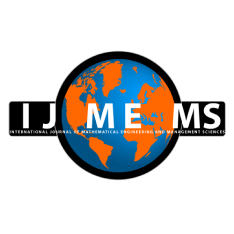Arkajyoti De
Department of Management, IMI Bhubaneswar, 751003, Odisha, India.
Ajay Bansal
Department of Management, Jaipuria Institute of Management, 201309, Noida, Uttar Pradesh, India.
DOI https://doi.org/10.33889/IJMEMS.2025.10.6.087
Abstract
The airline industry is undergoing a challenging time as the post-COVID market has changed the definition of customer satisfaction and integrated high uncertainties into service quality. Thus, this study aims to integrate post-COVID customer sentiments into redefining airline service quality and uses operations-research applications to mitigate the uncertainty in identifying the concerning factors. This paper identifies critical factors to be included in the post-COVID definition of airline service quality from the customers’ perceived experience. To reformulate a definition aligned to the present scenario, this study builds on the traditional SERVQUAL dimensions with COVID-19 safety, flight cleanliness, onboard environment, and flight delay factors. The paper uses the Shadowed Fuzzy application for the integrated Best-Worst-Method (BWM)-WASPAS method and evaluates the service quality of Indian domestic airlines via customer surveys. The results reveal a definite transition of customers’ concerns towards assurance of flight safety and security, smooth onboarding, and maintaining COVID protocols from traditional factors like price, luggage handling, and complimentary services. The result also implies that fulfilling responsiveness and empathy needs is less significant to the current consumer than reliability, tangible services, and assurance of flight and COVID safety and security. The responsiveness and empathy needs have now been aligned to crisis management. The study also performed a sensitivity analysis to analyze the robustness of the proposed model. Based on this current transition, this study suggests the airlines-companies to focus more on platform database management and process transparency management to assure the best quality to the customer.
Keywords- Shadowed fuzzy set, Best-Worst Method (BWM), WASPAS, Airlines-service-quality, SERVQUAL.
Citation
De, A., & Bansal, A. (2025). A Hybrid Shadowed Fuzzy Based MCDM Methodology for Analyzing Airlines Service Quality. International Journal of Mathematical, Engineering and Management Sciences, 10(6), 1880-1907. https://doi.org/10.33889/IJMEMS.2025.10.6.087.



